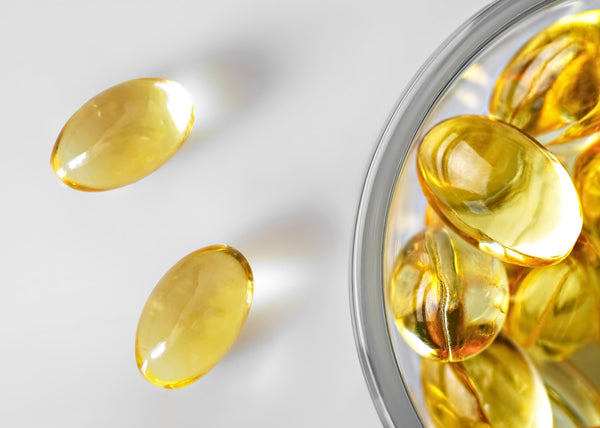Understanding PCOD
Polycystic Ovarian Disease (PCOD) is a hormonal disorder that affects women of reproductive age. It is characterized by imbalances in the levels of certain hormones, leading to various symptoms and health complications.
What is PCOD?
PCOD refers to the development of multiple small cysts on the ovaries. These cysts are immature follicles that fail to release an egg during the menstrual cycle. As a result, hormonal imbalances occur, leading to irregular menstrual periods, infertility, and other health issues.
Causes and Symptoms of PCOD
The exact cause of PCOD is not fully understood, but it is believed to involve a combination of genetic and environmental factors. Insulin resistance, excess production of androgens (male hormones), and inflammation are also thought to play a role in the development of PCOD.
Common symptoms of PCOD include irregular or absent periods, heavy bleeding, acne, weight gain, excess hair growth, and fertility problems. Women with PCOD may also experience mood swings, depression, and anxiety.
Diagnosis and Treatment of PCOD
Diagnosing PCOD can be challenging as the symptoms can vary widely among individuals. A healthcare provider may perform a physical exam, blood tests to measure hormone levels, and an ultrasound to examine the ovaries. Treatment for PCOD focuses on managing symptoms and may include lifestyle changes such as a healthy diet and regular exercise to help regulate hormones and improve insulin sensitivity.
In some cases, medications such as birth control pills, anti-androgen medications, or fertility treatments may be prescribed to help regulate menstrual cycles, reduce acne, or assist with fertility. Women with PCOD need to work closely with their healthcare provider to develop a personalized treatment plan that addresses their specific symptoms and concerns.
The Do's of Managing PCOD
While PCOD can be a challenging condition to manage, several key strategies can help improve symptoms and overall health.
Incorporate a Balanced Diet
A balanced diet is crucial for women with PCOD, as it helps regulate insulin levels and promotes weight management.
Focus on consuming whole foods, including fruits, vegetables, lean proteins, whole grains, and healthy fats. Limit the intake of processed and sugary foods, as they can exacerbate hormonal imbalances.
Additionally, incorporating specific nutrients into your diet, foods rich in antioxidants such as berries and leafy greens can help reduce inflammation in the body. Consuming foods high in fiber, like legumes and whole grains, can aid in maintaining stable blood sugar levels. Including sources of lean protein, such as chicken, fish, and tofu can support muscle growth and repair.
Regular Exercise
Exercise has numerous benefits for women with PCOD. It helps improve insulin sensitivity, promotes weight loss, reduces stress levels, and boosts overall well-being. Aim for at least 150 minutes of moderate-intensity aerobic activity per week, along with strength training exercises.
In addition to these general exercise recommendations, certain types of physical activity may be particularly beneficial for managing PCOD. For example, practicing yoga or engaging in other mind-body exercises can help reduce stress and improve hormonal balance. High-intensity interval training (HIIT) workouts have been shown to enhance insulin sensitivity and support weight loss in women with PCOD.
Have a Quality Sleep
Getting enough quality sleep is crucial for hormonal balance and overall health. Aim for 7-8 hours of uninterrupted sleep each night. Establish a relaxing bedtime routine and create a comfortable sleep environment to promote better sleep.
In addition to the duration of sleep, the quality of sleep is equally important for women with PCOD. Practicing good sleep hygiene, such as avoiding electronic devices before bed and keeping the bedroom cool and dark, can help improve the quality of your sleep. Creating a consistent sleep schedule, even on weekends, can also support healthy sleep patterns.
Consider Supplements
Certain supplements may be beneficial for women with PCOD, such as inositol, omega-3 fatty acids, and vitamin D. PCOS supplements containing inositols, chasteberry, and licorice are ideal for managing symptoms of PCOD.
In addition to these commonly recommended supplements, other natural remedies may help manage PCOD symptoms such as supplements for cramps. Sleep, an important part of a healthy routine, can also be managed by oral supplements. For example, herbal supplements like cinnamon and spearmint tea have been shown to have potential benefits in improving insulin sensitivity and reducing excessive hair growth.
Manage Weight
Maintaining a healthy weight is important for managing PCOD symptoms. Focus on gradual weight loss through a combination of healthy eating and regular exercise. Avoid crash diets or extreme approaches, as they can disrupt hormonal balance.
When it comes to weight management, it's important to remember that everyone's journey is unique. Working with a registered dietitian or a healthcare professional who specializes in PCOD can provide personalized guidance and support. They can help you develop a sustainable plan that takes into account your specific needs, preferences, and lifestyle.
The Don'ts of Managing PCOD
Along with the do's of managing PCOD, there are certain things that women with PCOD should avoid to prevent aggravating symptoms and complications.
Don't Smoke
Smoking not only increases the risk of various health problems, but it can also worsen PCOD symptoms. Smoking affects hormonal balance, impairs fertility, and increases the risk of insulin resistance. Quitting smoking is crucial for overall well-being.
Did you know that smoking can lead to an increase in androgen production? Androgens are male hormones that are present in both men and women, but an excess of these hormones can contribute to PCOD symptoms. By quitting smoking, you can help restore hormonal balance and reduce the severity of PCOD symptoms.
Don't Consume Alcohol
Alcohol consumption can disrupt hormone levels and liver function, making it harder for the body to process and eliminate excess hormones. Limit alcohol intake or avoid it altogether to support hormonal balance and overall health.
Furthermore, alcohol can hurt sleep quality. Poor sleep can lead to increased stress levels, which in turn can worsen PCOD symptoms. By cutting back on alcohol, you can improve your sleep patterns and potentially alleviate some of the challenges associated with PCOD.
Don't Skip Meals
Skipping meals can lead to blood sugar imbalances and insulin resistance, which can exacerbate PCOD symptoms. Aim for regular, balanced meals throughout the day to maintain stable blood sugar levels and support hormonal balance.
Additionally, skipping meals can cause a drop in energy levels and leave you feeling fatigued. This can make it difficult to engage in regular physical activity, which is important for managing PCOD. By prioritizing regular meals, you can ensure that your body has the necessary fuel to stay active and maintain a healthy weight.
Avoid High Sugar and Salt Foods
Foods high in sugar and salt can contribute to inflammation, insulin resistance, and weight gain. Limit the intake of sugary drinks, processed snacks, and high-sodium foods to help manage PCOD symptoms and improve overall health.
It's important to note that excessive sugar consumption can lead to a spike in insulin levels, which can disrupt hormone balance and worsen PCOD symptoms. By reducing your intake of sugary foods and beverages, you can help regulate insulin levels and potentially alleviate some of the challenges associated with PCOD.
Don't Neglect Your Mental Wellbeing
PCOD can also have a significant impact on mental health, with many women experiencing symptoms of anxiety and depression. Managing stress, practicing self-care, and seeking support from healthcare professionals are crucial for addressing both the physical and emotional aspects of PCOD.
It's important to prioritize your mental well-being when managing PCOD. Engaging in stress-reducing activities such as meditation, yoga, or spending time in nature can help alleviate symptoms of anxiety and depression. Additionally, seeking support from a therapist or counselor who specializes in PCOD can provide valuable guidance and coping strategies.
Importance of Regular Doctor's Appointments
Regular check-ups and follow-ups with healthcare professionals are essential for monitoring PCOD symptoms, managing complications, and adjusting treatment plans if necessary. Never skip doctor's appointments and be proactive in seeking medical guidance for optimal PCOD management.
Your doctor plays a crucial role in helping you manage PCOD effectively. They can monitor your hormone levels, assess your overall health, and make necessary adjustments to your treatment plan. By attending regular appointments, you can stay informed about your condition and ensure that you are receiving the best possible care.
Conclusion
Managing PCOD involves adopting the right strategies and lifestyle choices to improve overall well-being. Key practices include maintaining a balanced diet, engaging in regular exercise, prioritizing quality sleep, considering supplements, and managing weight. Avoiding smoking, excessive alcohol, high sugar and salt foods, skipping meals, neglecting mental health, and skipping doctor appointments is equally important. By following these dos and don'ts and embracing a holistic approach, women with PCOD can effectively manage their symptoms and lead fulfilling lives.




























